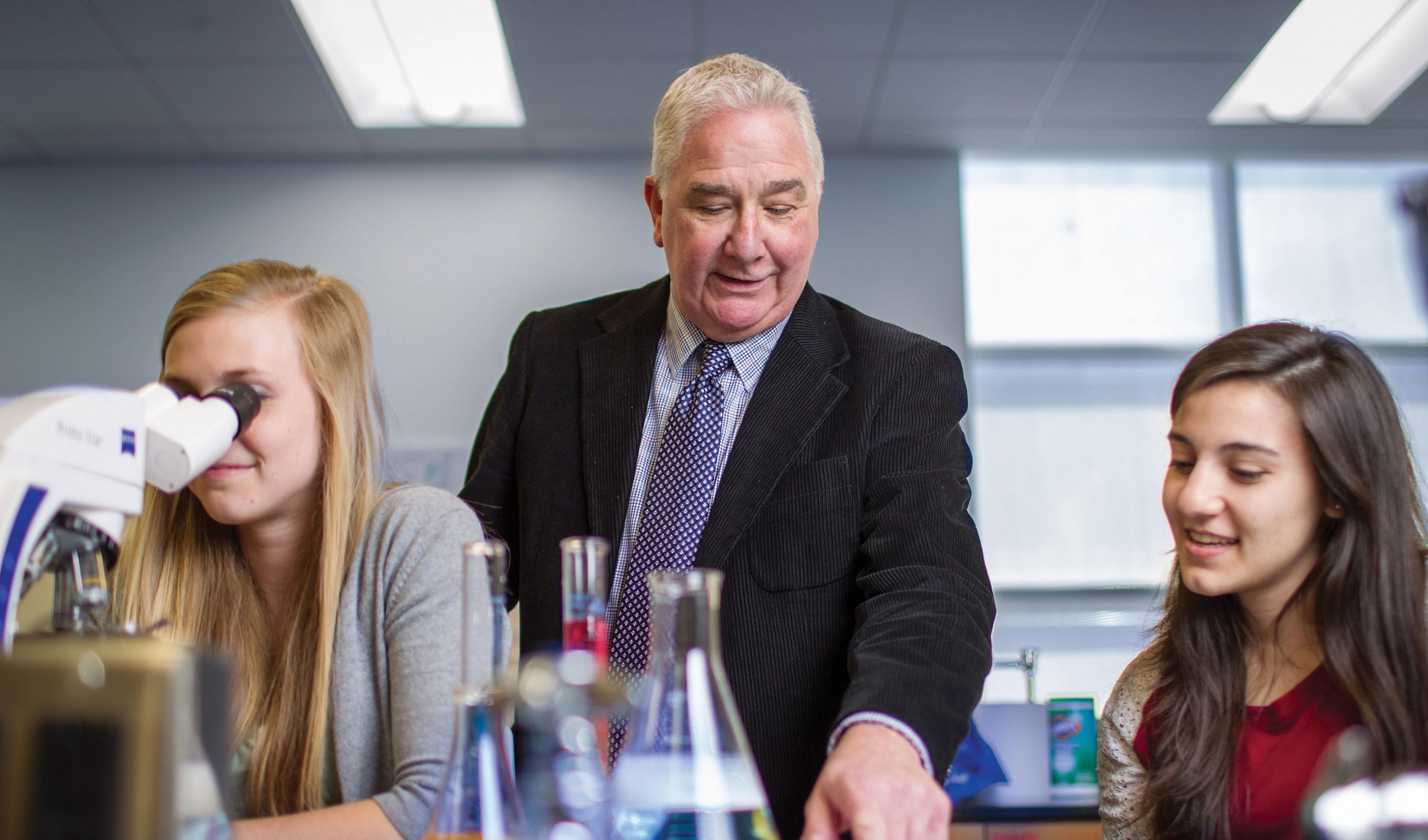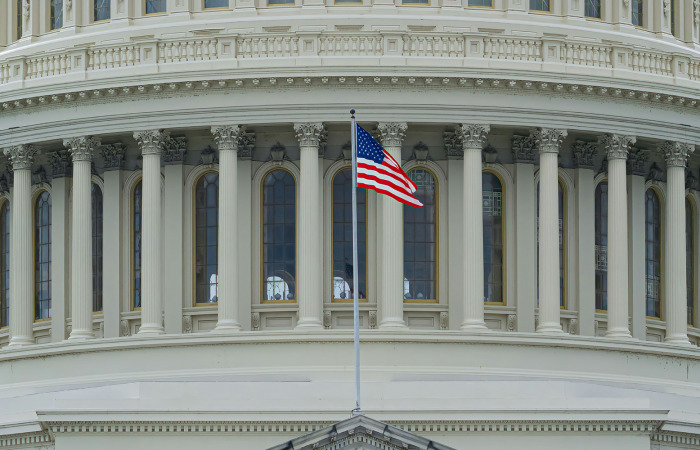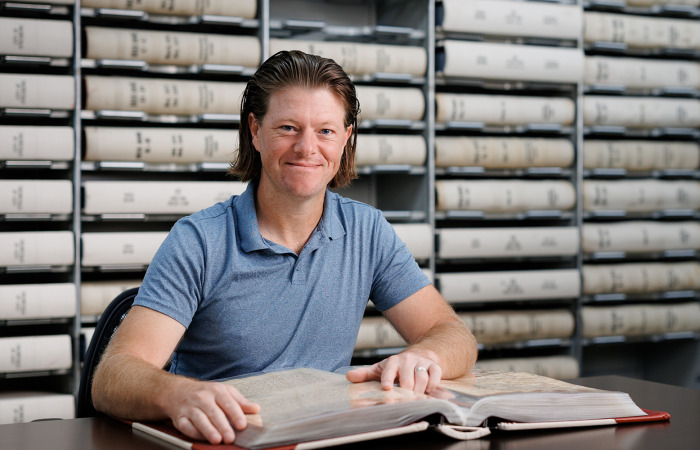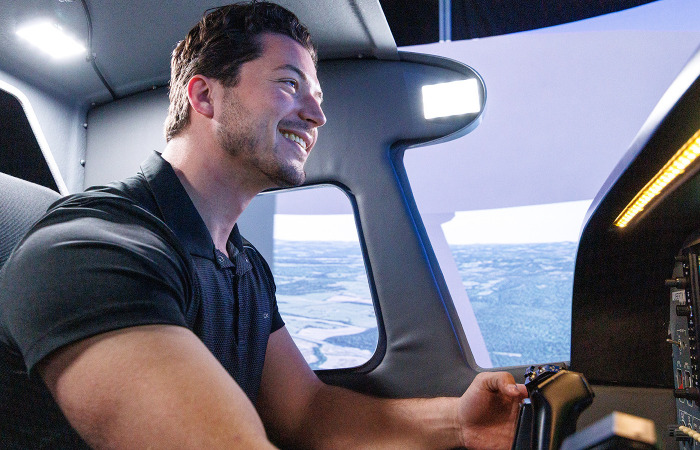While the popularity of on-screen crime dramas continues to generate interest in forensic science among viewers, Liberty University allows students to turn that interest into hands-on training in the field to help solve real crimes off screen.
Launched last fall, the B.S. in Forensic Science degree program is experiencing tremendous growth as its unique offerings provide students with real-world experience. Housed within the Department of Biology & Chemistry, the program offers specializations in forensic biology or forensic chemistry. Students train for careers as criminal investigators, DNA analysts, environmental protection specialists, and forensic chemists or toxicologists.
Those interested in law enforcement can earn a B.S. in Criminal Justice with a cognate in forensics through the Helms School of Government and train to work as police officers, detectives, or federal agents.
Forensic science students are also required to take four forensics courses through the criminal justice program. The courses teach crime scene investigation techniques that give them a deeper understanding of their career field and diversify their skills so they will stand out in a crowd once they graduate.
Dr. Joel Cox, assistant professor in the Helms School of Government and chair of the criminal justice program, said both degrees teach students the proper processing of a crime scene and the preservation of evidence.
“The forensic science degree at Liberty completes the investigative process from initial scene to evidence processing, and it prepares students to obtain jobs in both government and private forensic labs,” he said. “Our program is unique because we teach both criminal investigation and forensics.”
Those enrolled in the forensic science biology or chemistry programs take classes in analytical chemistry, forensic DNA analysis, forensic entomology, and crime scene photography. The department recently purchased two forensic comparison microscopes for use in tool mark and ballistic comparisons and for matching hair and fiber samples collected at crime scenes to known reference samples from suspects and victims. Students are trained on these microscopes in trace evidence analysis, preparing them to perform the same tasks that state and federal labs do.
Dr. J. Thomas McClintock, professor and director of the forensic science program and one of the world’s leading DNA experts, proposed the new degree program in order to train students who could bring a Christian perspective to the forensic science profession.
Among his many accomplishments, McClintock founded DNA Diagnostics, Inc. in 1993, which provides expert DNA advice in criminal and paternity cases. The company also gives seminars and workshops to investigators and law enforcement officials on topics such as presenting DNA evidence in the courtroom or handling and analyzing evidence. DNA Diagnostics, Inc. has provided services for more than 325 cases in 18 states, Canada, three European countries, and three territories.
One of McClintock’s objectives for Liberty’s forensics programs is to offer as much real-world exposure and hands-on experience to students as possible.
“You can learn a lot from a textbook, but I want my students to apply what they have learned,” he said. “I truly believe in applying what you learn during a specific semester in the classroom to the real world. I think the students appreciate (the knowledge) because they know they just learned it, and so they know how to actually apply it.”
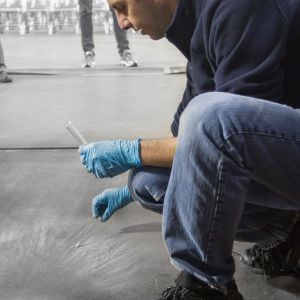
Liberty University partnered with the Virginia State Police to host a simulated bioterrorism attack at the Vines Center on Saturday, March 28.
In March, students from both departments participated in a simulated bioterrorist attack on campus. The exercise was led by Liberty alumnus Kevin Richards (’97), special agent for the Virginia State Police Counter-Terrorism & Criminal Interdiction Unit, who instructed students on how to set up the meters used by his department to detect biological and chemical agents. After a detailed training session, students filed into the Vines Center, where foggers were set up to simulate the release of microorganisms. The students were told to pretend that someone had released the biological agent during an event there, then had to use the meters to decide whether or not the microorganisms were deadly.
“Providing this hands-on experience to students was a privilege,” Richards said. “This simulation has given them real-life experience that they can use not only in class, but also in future career endeavors.”
Throughout the year, forensics students are privileged to hear from guest speakers who specialize in dealing with certain crimes, such as sexual assault. They also participate in exercises where they learn how to analyze crime scenes and perform autopsies on cadavers. In April, students took part in a mock trial where they learned how to present evidence and testify in front of a judge and jury. And every semester, a class project takes students on a trek to Liberty Mountain where they use forensic entomology to determine the time of death on a pig that has been placed in the rugged terrain.
McClintock said these events are great opportunities for students to learn how to use the latest equipment in the field in order to get a jump start on their careers.
“We have really tried to make sure that the students in our programs are prepared to enter the job market with the best possible skill set. The more experiences they have in school, the more job opportunities they will have when they graduate,” he said.
During their senior year, forensic science students have the opportunity to intern in the nation’s capital as part of the Washington Fellowship. The fellowship program has partnered with the FBI, NCIS, and the Arlington County Police to place students in areas where they will gain invaluable experience. According to McClintock, these organizations specifically ask for Liberty students. Current efforts are underway to establish other partnerships with the Virginia Department of Forensic Science, the local medical examiner’s office, and local police departments.
As the program continues to grow, McClintock hopes that more classes in forensic science will be offered and that more cutting-edge equipment will be acquired.
“God has blessed our department with incredible faculty and students who have an excitement and an eagerness to grow in the field they have chosen,” he said. “As the program grows, we are seeking to achieve excellence on every possible level.”
Meet Kevin Richards
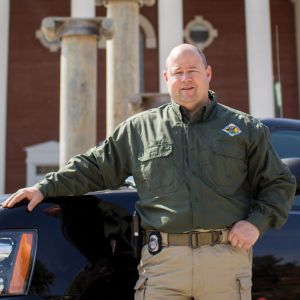 Alumnus Kevin Richards (’97) graduated with a B.A. in Government. After completing his degree, Richards became a state trooper with the Virginia State Police. He is now a special agent for the Virginia State Police Counter-Terrorism & Criminal Interdiction Unit.
Alumnus Kevin Richards (’97) graduated with a B.A. in Government. After completing his degree, Richards became a state trooper with the Virginia State Police. He is now a special agent for the Virginia State Police Counter-Terrorism & Criminal Interdiction Unit.
Richards is called to crime scenes where there are poisons, toxins, and anything that could be classified as a weapon of mass destruction. Additionally, he works with the drug interdiction team on highway patrol calls.
Richards said that the new forensic science program at Liberty is a great opportunity for students to learn about the profession while still in school. He added that the criminal justice program is important because there is an immense need for Christian law enforcement officers.
“Most cops are very honest and very straightforward people, but the idea of compassion and seeing people through Christ’s eyes is different,” he said. “When you see the root of things, it makes you a better policeman and a better community servant as well.”
Richards said graduating from Liberty makes you part of the Liberty family for a lifetime.
“When I came back to campus after all these years to help students, I felt like I had never left in the first place. Graduating from this school gives you a sense of ownership for the rest of your life,” he said.
Richards added that during his time as a student he was able to learn and grow as a person and in his faith.
“Having a degree from Liberty is the line in the sand; wherever you go, people know what you stand for,” he said. “I am thankful to have been able to come back and to work with students in my field of experience. I am hoping that when I retire, another Liberty student will fill my spot.”
